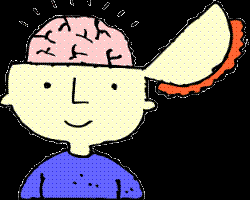“It is a similar pattern to what’s seen in patients with strokes that have led to lesions in their prefrontal cortex,” which controls higher-order thinking and problem solving, says lead researcher Mark Kishiyama, a cognitive psychologist at the University of California-Berkeley. “It suggests that in these kids, prefrontal function is reduced or disrupted in some way.”
The study adds to a growing body of evidence that shows how poverty afflicts children’s brains. Researchers have long pointed to the ravages of malnutrition, stress, illiteracy and toxic environments in low-income children’s lives. Research has shown that the neural systems of poor children develop differently from those of middle-class children, affecting language development and “executive function,” or the ability to plan, remember details and pay attention in school.
Such deficiencies are reversible through intensive intervention such as focused lessons and games that encourage children to think out loud or use executive function.




